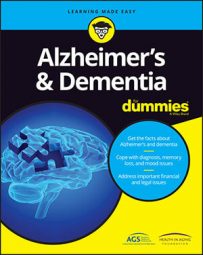In fact, evidence shows that this type of therapy not only improves the mood of someone with dementia but also has a positive effect on general wellbeing and maintaining relationships with caregivers, friends, and family members. And it can improve some aspects of cognitive function too.
Chatting with friends and family about happy times shared in the past generally makes many people feel good inside. Remembering the late 1960s, 1970s, and 1980s, or even better still seeing TV clips or hearing songs from that era, can bring deep long-term memories to light even for many people with dementia.
Not all memories are happy or positive. Some prompts may remind a person of past hurt or trauma. Reminiscence therapy may bring back memories of people the person has lost, for example, and the grief she experiences may be as vivid as if the person has just died. These bad memories must be dealt with sensitively and not ignored in the hope that they'll go away on their own. Let the person with dementia talk about her feelings and have a good cry if she needs to.
Don't assume that everyone wants to spend time looking at their past. Engagement in reminiscence therapy must be voluntary if it's to be beneficial.
Reminiscence therapy holds as many possibilities as your imagination can produce. You can carry out one-to-one or group sessions, whichever seems most appropriate. Reminiscence therapy is suitable in a variety of settings, such as people's homes, daycare centers, nursing homes, and even hospitals.You can use a whole range of media, from photos and films to books, records, and old magazines, and even favorite foods and drinks to help your loved one reminisce. Working on a scrapbook of things to refer back to time and again is a nice idea.
Here are a few suggestions for appealing to each of the senses:
- Sound: Most people have a favorite song, individual piece of music, or even whole genre, such as jazz or dance hall tunes, that they like to listen to because the music takes them to a place in their heads that nothing else can reach. Maybe a particular song reminds you of a first date, the sensation of falling in love, the first dance at your wedding, or favorite film.
Reminiscing about music, playing it again, and talking about how it affects someone can be a useful part of reminiscence therapy. It can lead to discussions about the people, places, and times that made it special.
- Touch: Holding favorite items of jewelry or cherished ornaments can lead into some interesting conversations about where they came from and the special memories they evoke. Old clothing, like a T-shirt or fur coat, can also trigger such memories. Medals and trophies can be particularly good tools for reminiscence, although they may bring back sad as well as happy memories.
- Sight: Looking at old family photo albums or home films or videos can be a good start here. Books of photographs of someone's hometown, newsreels of historic events, and favorite old films can all trigger memories.
- Taste and smell: Food and drink can also be shared and used to trigger thoughts of people and places. You can involve the person with dementia in cooking a favorite meal, or set up a restaurant meal and encourage a group of participants to chat and share memories of meals abroad or with loved ones.
Quizzes and sing-alongs to old favorites can also be a great way to encourage people to communicate and connect with each other. The more fun, the better.

